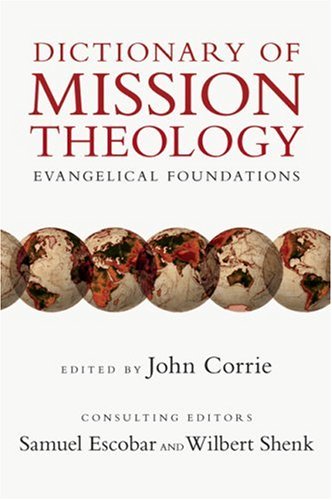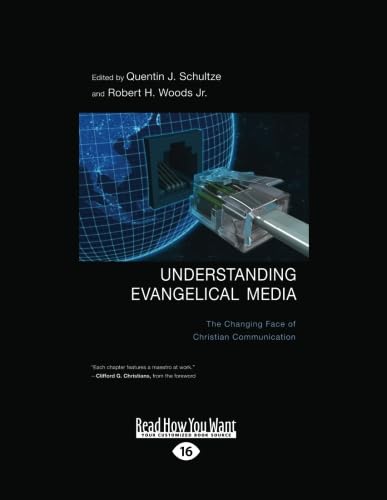War in the Bible and Terrorism in the Twenty-First Century
Written by Richard S. Hess and Elmer A. Martens Reviewed By John GoldingayThis collection of essays results from a conference at Denver Seminary in 2004. It must have been an interesting event because the symposium represents a wide range of views. I would like to have overheard the conversations over dinner.
It begins with a paper on “Christianity and Violence” by my former colleague, theologian Miroslav Volf, whose qualifications include his experience of the terrible conflicts that followed the breakup of Yugoslavia. I appreciated the way he argues against the idea that religion by nature is violent, the idea that monotheism entails violence, and the misuse of Christian faith to underwrite violence. I was less sure about his argument against the idea that neither creation nor new creation involve violence, since there is significant scriptural material that suggests that the contrary is true.
The subsequent chapter by Richard Hess brings out this problem in its own way as it provides an overview of warfare in the Hebrew Bible and thus considers themes such as Yahweh the warrior. It closes with the observation that the Bible “recognizes battle as a necessary evil in the context of a greater struggle between good and evil” (p. 32). That again seems a modern way to frame the issue. The Bible is more accepting of warfare than this implies.
Elmer Martens then argues that (contrary to one of the views Volf contests) shalom is the legacy of biblical monotheism. But he too has to comment that if this is so, “texts in which God instructs Israel to annihilate her enemies … represent a conundrum” (p. 43), and he surveys ways of seeking to resolve it. In my view, one of the considerations that help with the conundrum is that the peoples Dr. Martens mentions as ones God instructs Israel to annihilate (such as the Hittites and Canaanites) are not Israel’s enemies. They are people whom God chooses to treat as enemies (because of their wrongdoing).
Daniel Carroll then discusses “Impulses Toward Peace in a Country at War: The Book of Isaiah Between Realism and Hope”; he too writes against the background of personal involvement in the issues he discusses, having lived in Guatemala from 1982 to 1996. It is a promising place to start if we want to think about faith and warfare, given that like other prophets, Isaiah has no place for Israel fighting.
Daniel Heimbach then provides an interesting reflection on the Gulf War, writing as someone who affirms the notion of “Just War,” though a key point he wishes to emphasize is that the claim that in our context the notion of just war can justify pre-emptive war is a harmful modification of this notion. Tony Pfaff, a lieutenant colonel in the U.S. Army, then reflects on the moral dilemmas involved in attacking terrorist groups with the attendant risk of harming civilians. While the risk cannot be avoided, he concludes that, in the midst of justifiable U.S. anger, “its leaders must take care not to become like the enemy it opposes” (p. 112). Ian Durie, a former major general in the British army, continues the discussion of terrorism and just war, asking how far just war theory can be applied to attacks on terrorism. (I found this an especially moving chapter because Ian Durie was a student at the seminary where I taught in the U.K. but was killed in a traffic accident in Romania while in that country to teach the ethics of leadership.)
The final chapter by my colleague Glen Stassen abjures discussion of whether war can be justified in favor of arguing for the way just peacemaking can reduce terrorism and suggests ten just peacemaking practices such as using cooperative conflict resolution, fostering just and sustainable economic development, and reducing the weapons trade. I would like to think he is right, though I am not sure that we have the evidence, and he reminded me of G. K. Chesterton’s saying: “The Christian ideal has not been tried and found wanting. It has been found difficult and left untried.”
I think much of the symposium reflects an unresolved and often unrecognized problem about biblical interpretation in connection with issues related to war and peace. It was only in the context of modernity that war became a problem, something whose existence people were no longer willing simply to accept as a reality of human life and something they believed could be overcome. The nature of war in the twentieth and twenty-first centuries and the frighteningly war-making nature of our lifetime then made it even more impossible to come to terms with the reality of war as “just one of those things.” In this context I can quite believe that God calls the church to pacifism and just peacemaking. But the problem in connection with biblical interpretation is that we then read into Scripture such concerns that God gives us, when these concerns are not present in Scripture where the context was so different and where the nature of the faith’s interaction with war was so different. We assume that Scripture should and does operate with the same framework as we do. It does not, and this is all right. But we need to come to think in its framework if we are to learn from it.
John Goldingay
Fuller Theological Seminary
Other Articles in this Issue
For Ezra had set his heart to study the Law of the LORD, and to do it and to teach his statutes and rules in Israel (Ezra 7:10)...
Salvation History, Chronology, and Crisis: A Problem with Inclusivist Theology of Religions, Part 2
by Adam SparksA fundamental requirement in an inclusivist understanding of the relationship between Christianity and other religions is evidence of God's salvific activity outside of any knowledge of Christ...
The Center of Biblical Theology in Acts: Deliverance and Damnation Display the Divine
by James M. Hamilton Jr.Acts 1:1 opens with a reference to what Jesus "began to do and teach"1 recounted in the Gospel of Luke, indicating that this second volume will carry the narrative of Jesus' actions and teachings forward...
Shared Intentions? Reflections on Inspiration and Interpretation in Light of Scripture’s Dual Authorship
by Jared ComptonIt was not too long ago that Kevin Vanhoozer answered the question Is There a Meaning in This Text? by relocating meaning in authorial intention,1 doing so even more robustly (not to mention, evangelically) than E...
The original question I was asked to address was "How does our commitment to the primacy of the gospel tie into our obligation to do good to all, especially those of the household of faith, to serve as salt and light in the world, to do good to the city?" I will divide this question into two parts: (1) If we are committed to the primacy of the gospel, does the gospel itself serve as the basis and motivation for ministry to the poor? (2) If so, how then does that ministry relate to the proclamation of the gospel?







